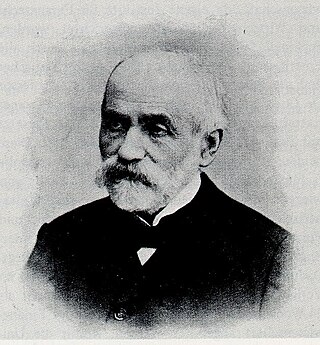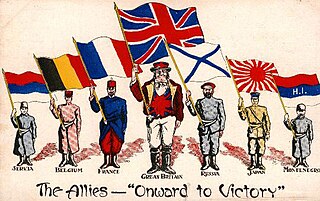
Ethnocentrism in social science and anthropology—as well as in colloquial English discourse—means to apply one's own culture or ethnicity as a frame of reference to judge other cultures, practices, behaviors, beliefs, and people, instead of using the standards of the particular culture involved. Since this judgment is often negative, some people also use the term to refer to the belief that one's culture is superior to, or more correct or normal than, all others—especially regarding the distinctions that define each ethnicity's cultural identity, such as language, behavior, customs, and religion. In common usage, it can also simply mean any culturally biased judgment. For example, ethnocentrism can be seen in the common portrayals of the Global South and the Global North.

A tradition is a system of beliefs or behaviors passed down within a group of people or society with symbolic meaning or special significance with origins in the past. A component of cultural expressions and folklore, common examples include holidays or impractical but socially meaningful clothes, but the idea has also been applied to social norms and behaviors such as greetings etc. Traditions can persist and evolve for thousands of years— the word tradition itself derives from the Latin word tradere literally meaning to transmit, to hand over, to give for safekeeping. While it is reportedly assumed that traditions have an ancient history, many traditions have been invented on purpose, whether it be political or cultural, over short periods of time. Various academic disciplines also use the word in a variety of ways.

The "Clash of Civilizations" is a thesis that people's cultural and religious identities will be the primary source of conflict in the post–Cold War world. The American political scientist Samuel P. Huntington argued that future wars would be fought not between countries, but between cultures. It was proposed in a 1992 lecture at the American Enterprise Institute, which was then developed in a 1993 Foreign Affairs article titled "The Clash of Civilizations?", in response to his former student Francis Fukuyama's 1992 book The End of History and the Last Man. Huntington later expanded his thesis in a 1996 book The Clash of Civilizations and the Remaking of World Order.
In anthropology, folkloristics, and the social and behavioral sciences, emic and etic refer to two kinds of field research done and viewpoints obtained.
Identity is the set of qualities, beliefs, personality traits, appearance, and/or expressions that characterize a person or a group.

Social construction of technology (SCOT) is a theory within the field of science and technology studies. Advocates of SCOT—that is, social constructivists—argue that technology does not determine human action, but that rather, human action shapes technology. They also argue that the ways a technology is used cannot be understood without understanding how that technology is embedded in its social context. SCOT is a response to technological determinism and is sometimes known as technological constructivism.

National identity is a person's identity or sense of belonging to one or more states or one or more nations. It is the sense of "a nation as a cohesive whole, as represented by distinctive traditions, culture, and language". National identity may refer to the subjective feeling one shares with a group of people about a nation, regardless of one's legal citizenship status. National identity is viewed in psychological terms as "an awareness of difference", a "feeling and recognition of 'we' and 'they'". National identity also includes the general population and diaspora of multi-ethnic states and societies that have a shared sense of common identity identical to that of a nation while being made up of several component ethnic groups. Hyphenated ethnicities are examples of the confluence of multiple ethnic and national identities within a single person or entity.
Symbolic anthropology or, more broadly, symbolic and interpretive anthropology, is the study of cultural symbols and how those symbols can be used to gain a better understanding of a particular society. According to Clifford Geertz, "[b]elieving, with Max Weber, that man is an animal suspended in webs of significance he himself has spun, I take culture to be those webs, and the analysis of it to be therefore not an experimental science in search of law but an interpretive one in search of meaning". In theory, symbolic anthropology assumes that culture lies within the basis of the individuals’ interpretation of their surrounding environment, and that it does not in fact exist beyond the individuals themselves. Furthermore, the meaning assigned to people's behavior is molded by their culturally established symbols. Symbolic anthropology aims to thoroughly understand the way meanings are assigned by individuals to certain things, leading then to a cultural expression. There are two majorly recognized approaches to the interpretation of symbolic anthropology, the interpretive approach, and the symbolic approach. Both approaches are products of different figures, Clifford Geertz (interpretive) and Victor Turner (symbolic). There is also another key figure in symbolic anthropology, David M. Schneider, who does not particularly fall into either of the schools of thought. Symbolic anthropology follows a literary basis instead of an empirical one meaning there is less of a concern with objects of science such as mathematics or logic, instead of focusing on tools like psychology and literature. That is not to say fieldwork is not done in symbolic anthropology, but the research interpretation is assessed in a more ideological basis.

The sociology of culture, and the related cultural sociology, concerns the systematic analysis of culture, usually understood as the ensemble of symbolic codes used by a member of a society, as it is manifested in the society. For Georg Simmel, culture referred to "the cultivation of individuals through the agency of external forms which have been objectified in the course of history". Culture in the sociological field is analyzed as the ways of thinking and describing, acting, and the material objects that together shape a group of people's way of life.

A sociological theory is a supposition that intends to consider, analyze, and/or explain objects of social reality from a sociological perspective, drawing connections between individual concepts in order to organize and substantiate sociological knowledge. Hence, such knowledge is composed of complex theoretical frameworks and methodology.
In ethics and social sciences, value denotes the degree of importance of some thing or action, with the aim of determining which actions are best to do or what way is best to live, or to describe the significance of different actions. Value systems are proscriptive and prescriptive beliefs; they affect the ethical behavior of a person or are the basis of their intentional activities. Often primary values are strong and secondary values are suitable for changes. What makes an action valuable may in turn depend on the ethical values of the objects it increases, decreases, or alters. An object with "ethic value" may be termed an "ethic or philosophic good".

A fad, trend, or craze is any form of collective behavior that develops within a culture, a generation or social group in which a group of people enthusiastically follow an impulse for a short time period.
A cultural divide is "a boundary in society that separates communities whose social economic structures, opportunities for success, conventions, styles, are so different that they have substantially different psychologies". A cultural divide is the virtual barrier caused by cultural differences, that hinder interactions, and harmonious exchange between people of different cultures. For example, avoiding eye contact with a superior shows deference and respect in East Asian cultures, but can be interpreted as suspicious behavior in Western cultures. Studies on cultural divide usually focus on identifying and bridging the cultural divide at different levels of society.

Sociology of terrorism is a field of sociology that seeks to understand terrorism as a social phenomenon. The field defines terrorism, studies why it occurs and evaluates its impacts on society. The sociology of terrorism draws from the fields of political science, history, economics and psychology. The sociology of terrorism differs from critical terrorism studies, emphasizing the social conditions that enable terrorism. It also studies how individuals as well as states respond to such events.

Deviance or the sociology of deviance explores the actions and/or behaviors that violate social norms across formally enacted rules as well as informal violations of social norms. Although deviance may have a negative connotation, the violation of social norms is not always a negative action; positive deviation exists in some situations. Although a norm is violated, a behavior can still be classified as positive or acceptable.

Culture is a concept that encompasses the social behavior, institutions, and norms found in human societies, as well as the knowledge, beliefs, arts, laws, customs, capabilities, and habits of the individuals in these groups. Culture is often originated from or attributed to a specific region or location.
A dominant culture is a cultural practice that is dominant within a particular political, social or economic entity, in which multiple cultures co-exist. It may refer to a language, religion or ritual practices, social value and/or social custom. These features are often a norm for an entire society. An individual achieves dominance by being perceived as belonging to that majority culture which has a significant presence in institutions relating to communication, education, artistic expression, law, government and business. The concept of "dominant culture" is generally used in academic discourse in fields such as communication, sociology, anthropology and cultural studies.

Cultural globalization refers to the transmission of ideas, meanings and values around the world in such a way as to extend and intensify social relations. This process is marked by the common consumption of cultures that have been diffused by the Internet, popular culture media, and international travel. This has added to processes of commodity exchange and colonization which have a longer history of carrying cultural meaning around the globe. The circulation of cultures enables individuals to partake in extended social relations that cross national and regional borders. The creation and expansion of such social relations is not merely observed on a material level. Cultural globalization involves the formation of shared norms and knowledge with which people associate their individual and collective cultural identities. It brings increasing interconnectedness among different populations and cultures. The idea of cultural globalization emerged in the late 1980s, but was diffused widely by Western academics throughout the 1990s and early 2000s. For some researchers, the idea of cultural globalization is reaction to the claims made by critics of cultural imperialism in the 1970s and 1980s.

Criminology is the interdisciplinary study of crime and deviant behaviour. Criminology is a multidisciplinary field in both the behavioural and social sciences, which draws primarily upon the research of sociologists, political scientists, economists, legal sociologists, psychologists, philosophers, psychiatrists, social workers, biologists, social anthropologists, scholars of law and jurisprudence, as well as the processes that define administration of justice and the criminal justice system.
Cultural homogenization is an aspect of cultural globalization, listed as one of its main characteristics, and refers to the reduction in cultural diversity through the popularization and diffusion of a wide array of cultural symbols—not only physical objects but customs, ideas and values. David E. O'Connor defines it as "the process by which local cultures are transformed or absorbed by a dominant outside culture". Cultural homogenization has been called "perhaps the most widely discussed hallmark of global culture". In theory, homogenization could work in the breakdown of cultural barriers and the global adoption of a single culture.











